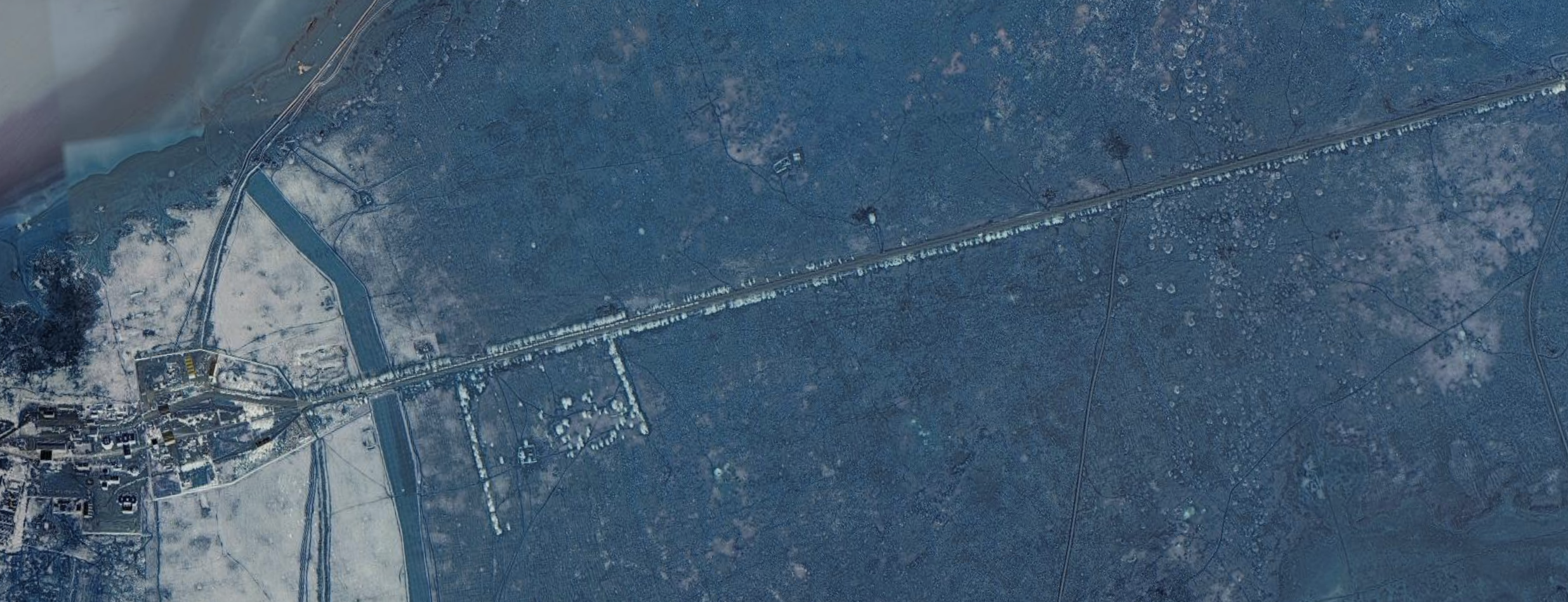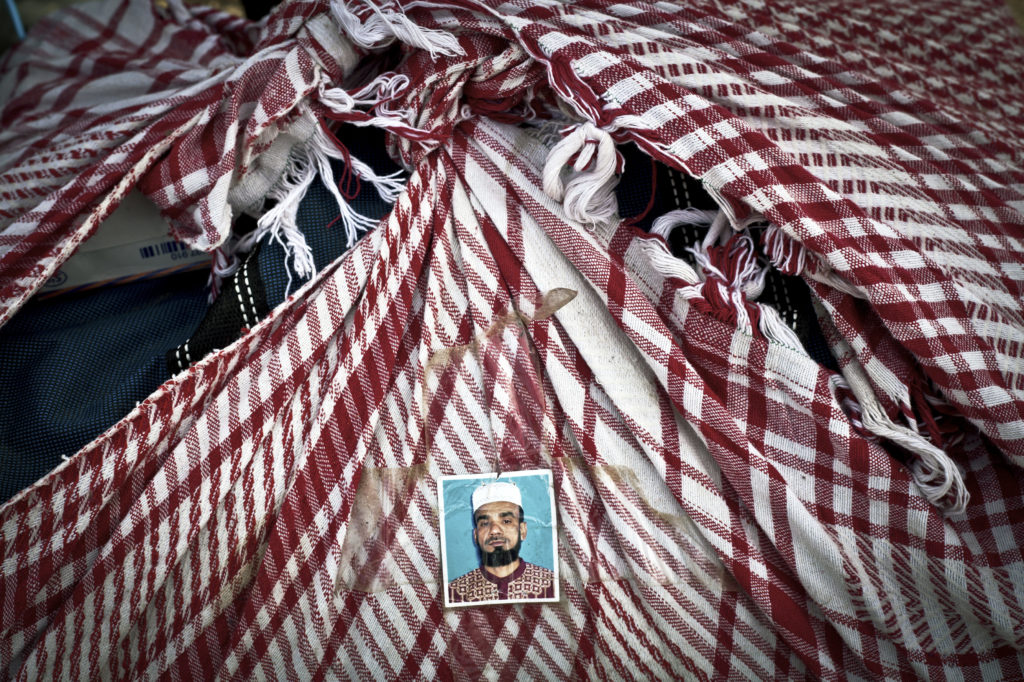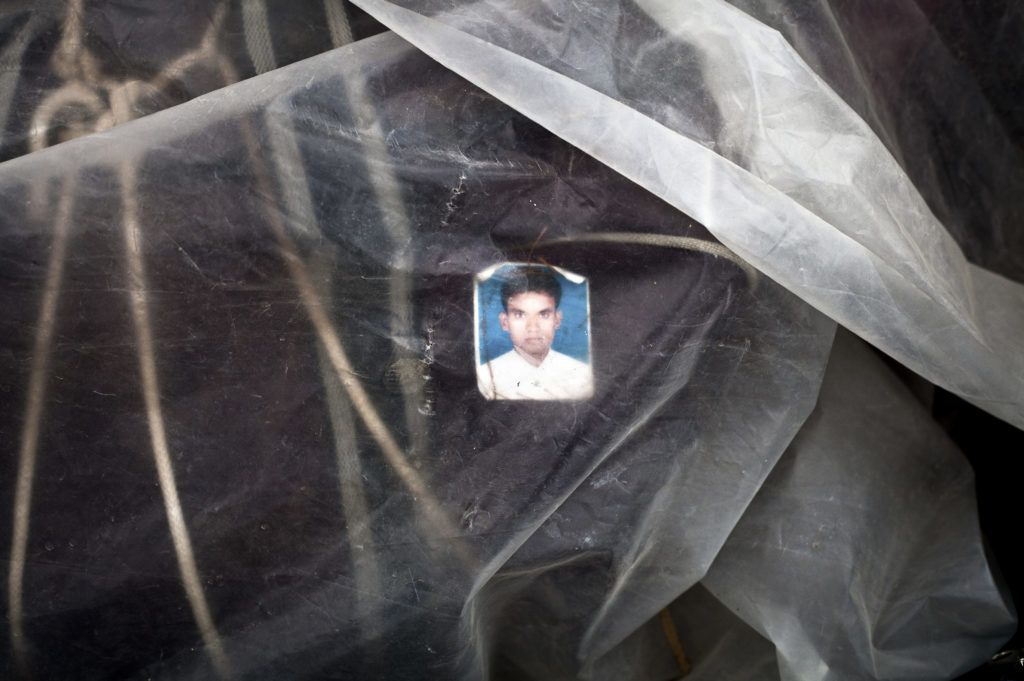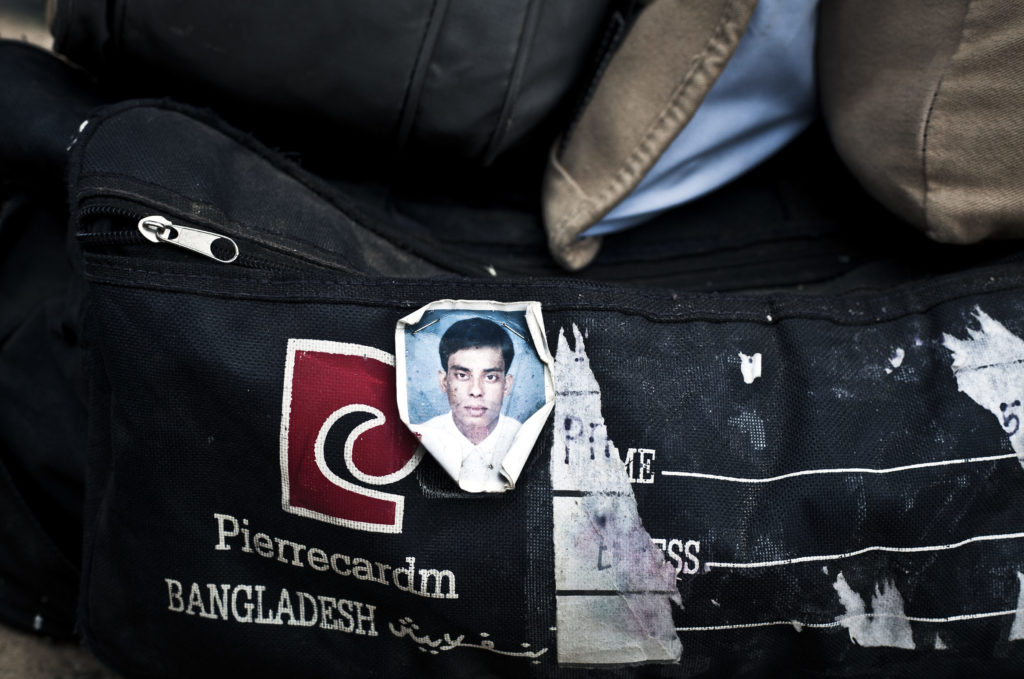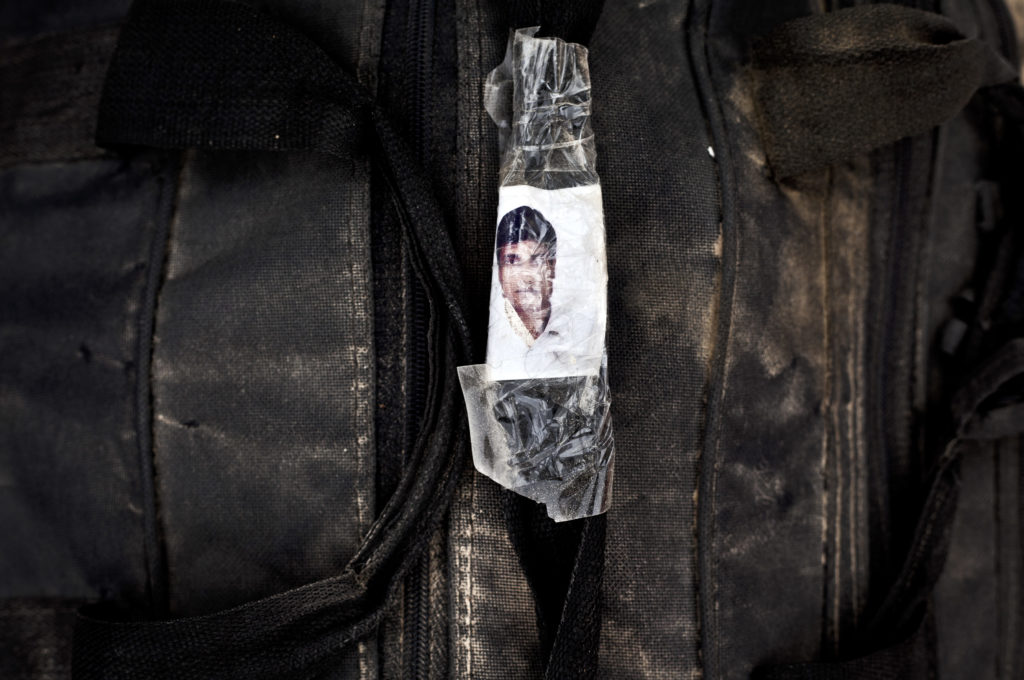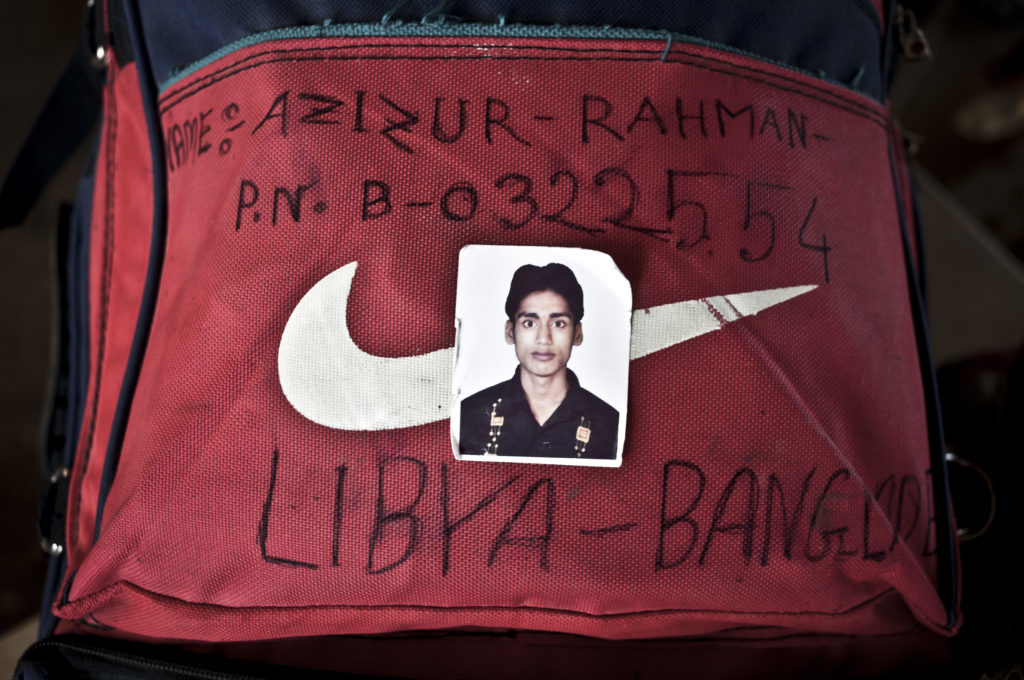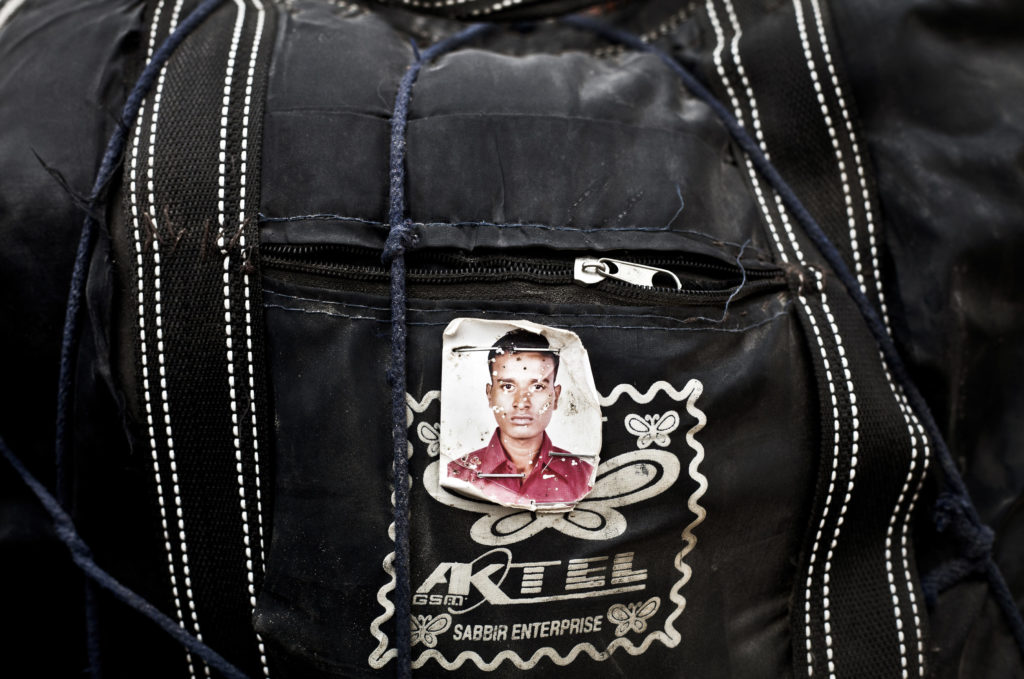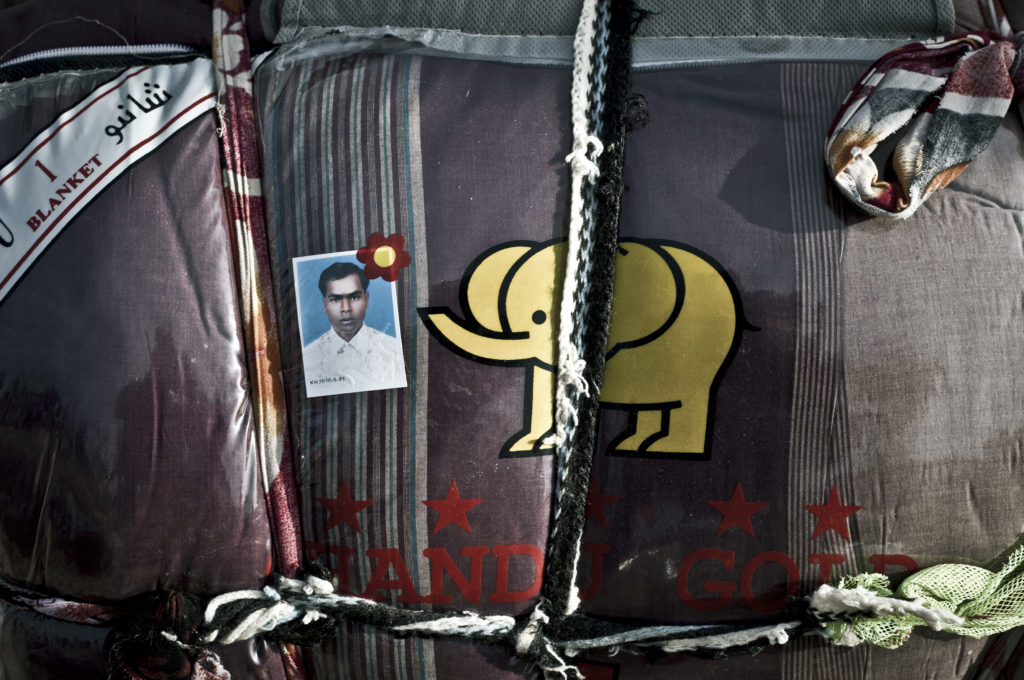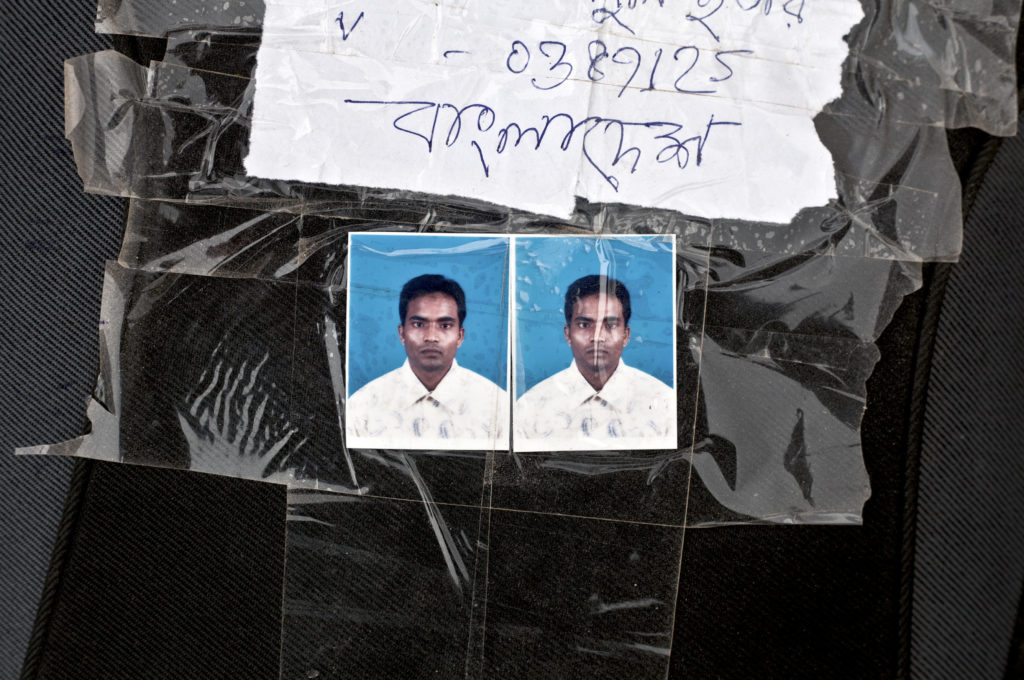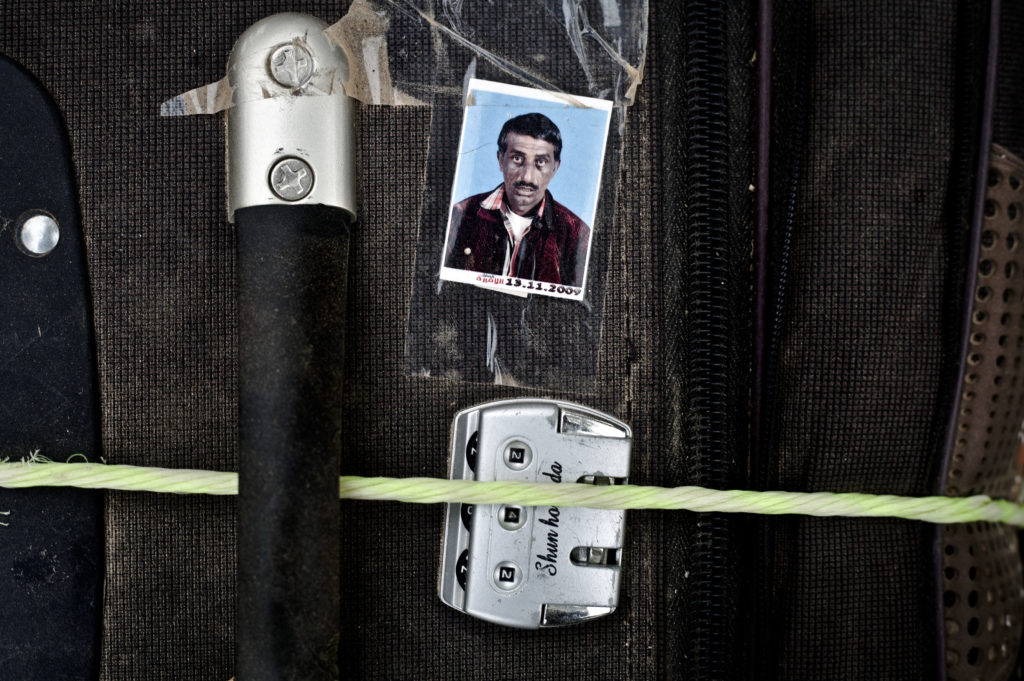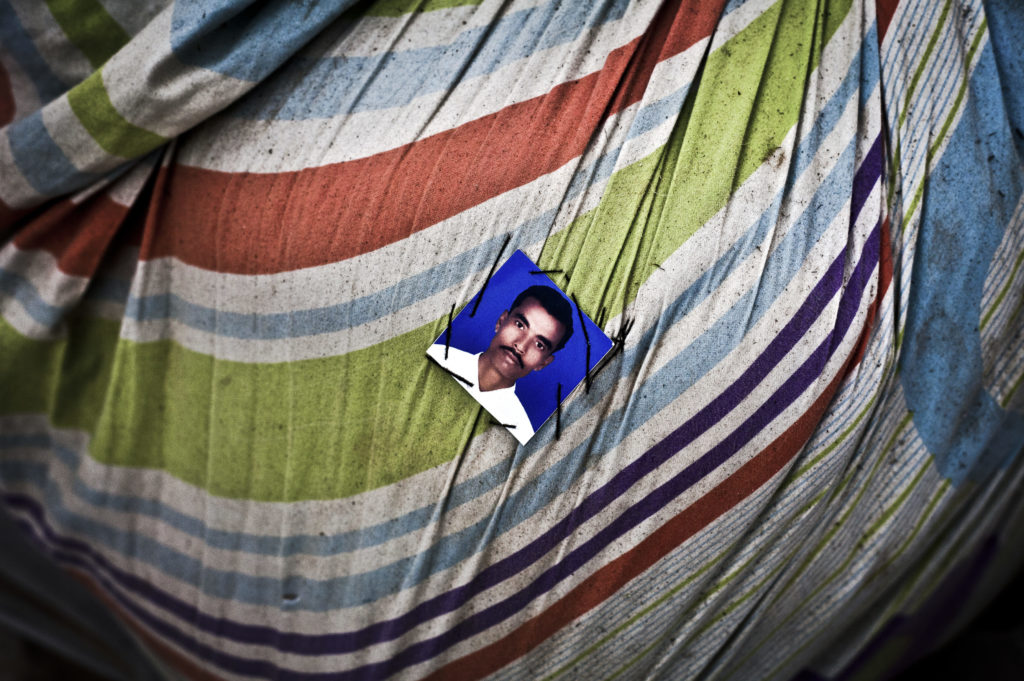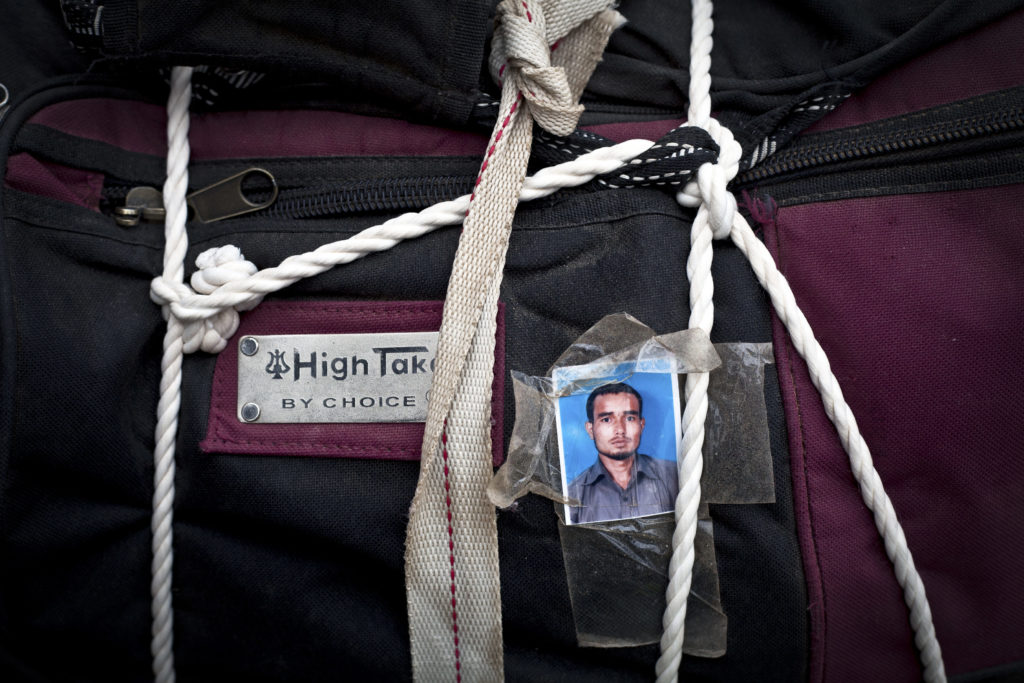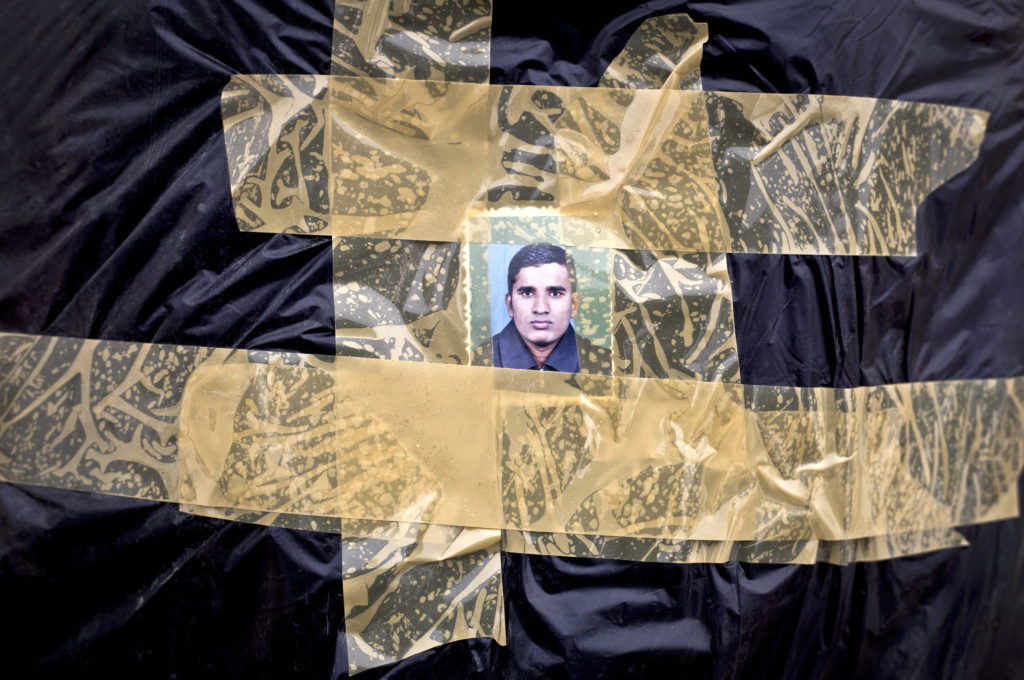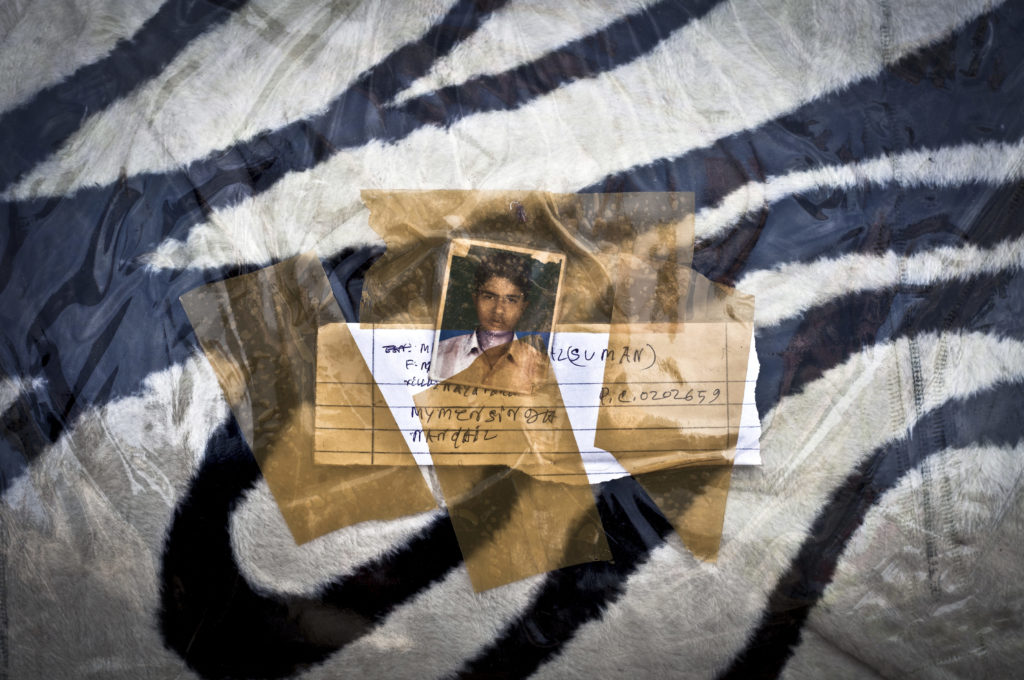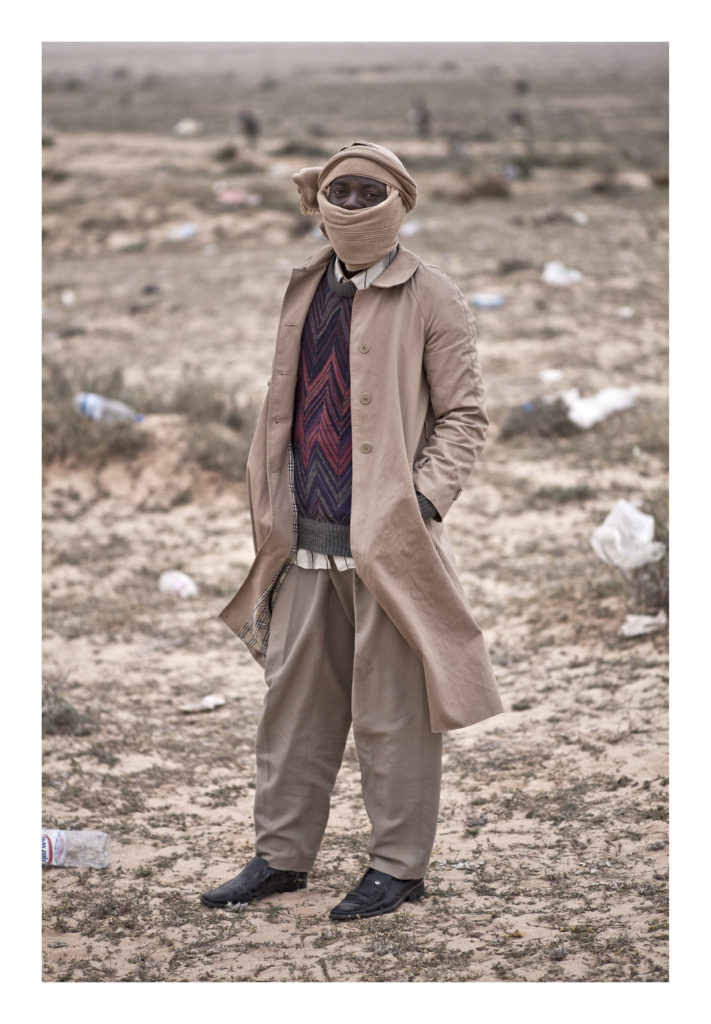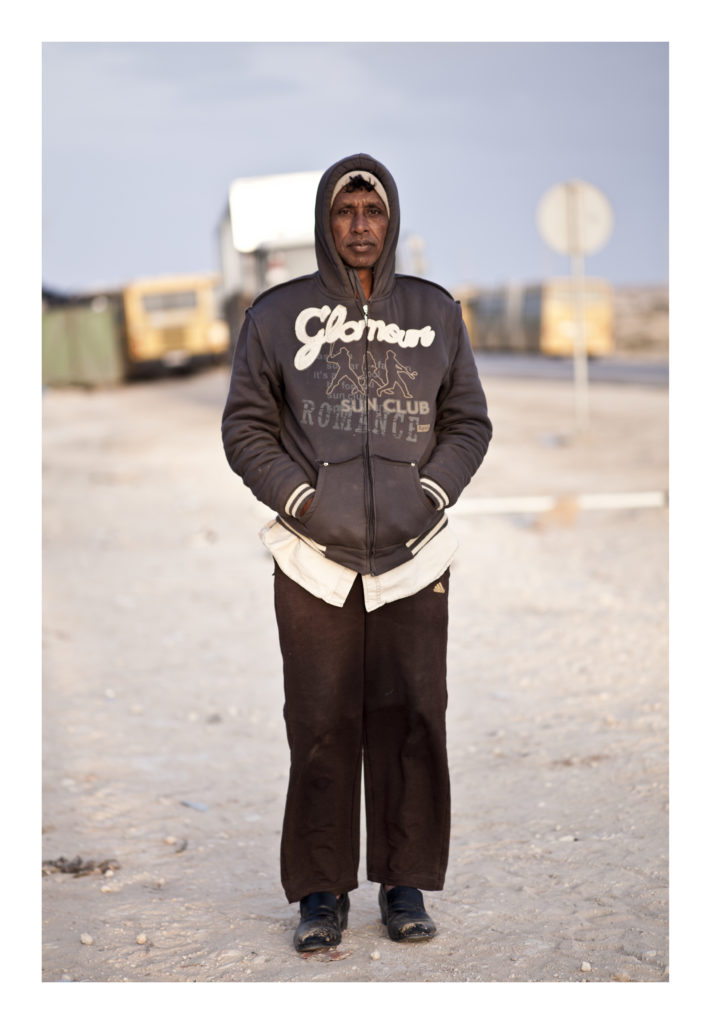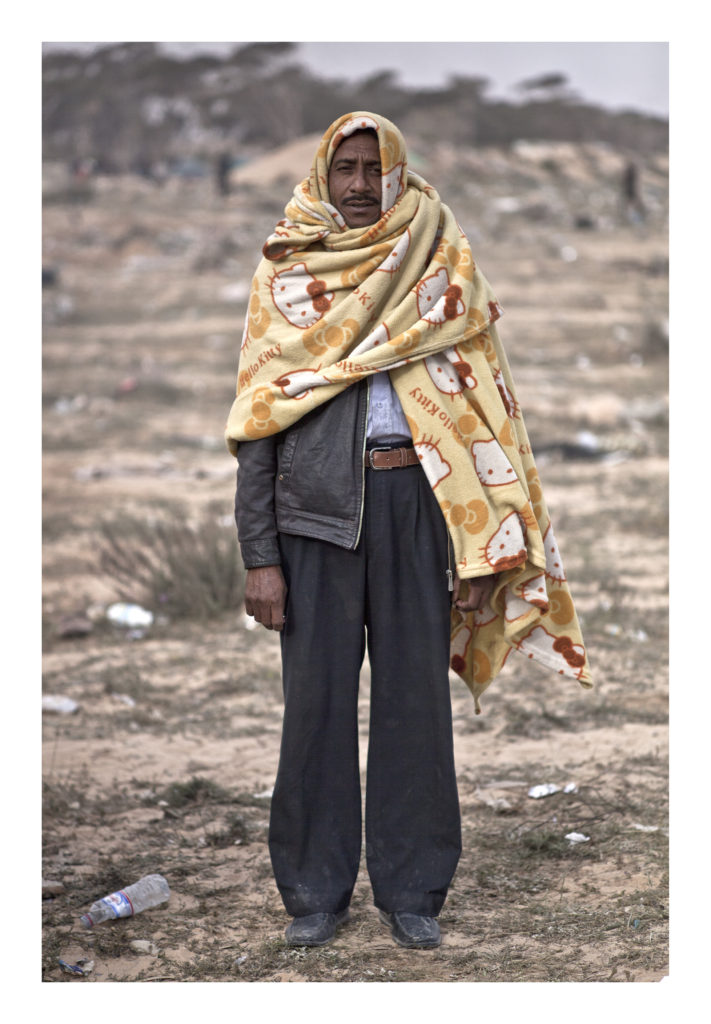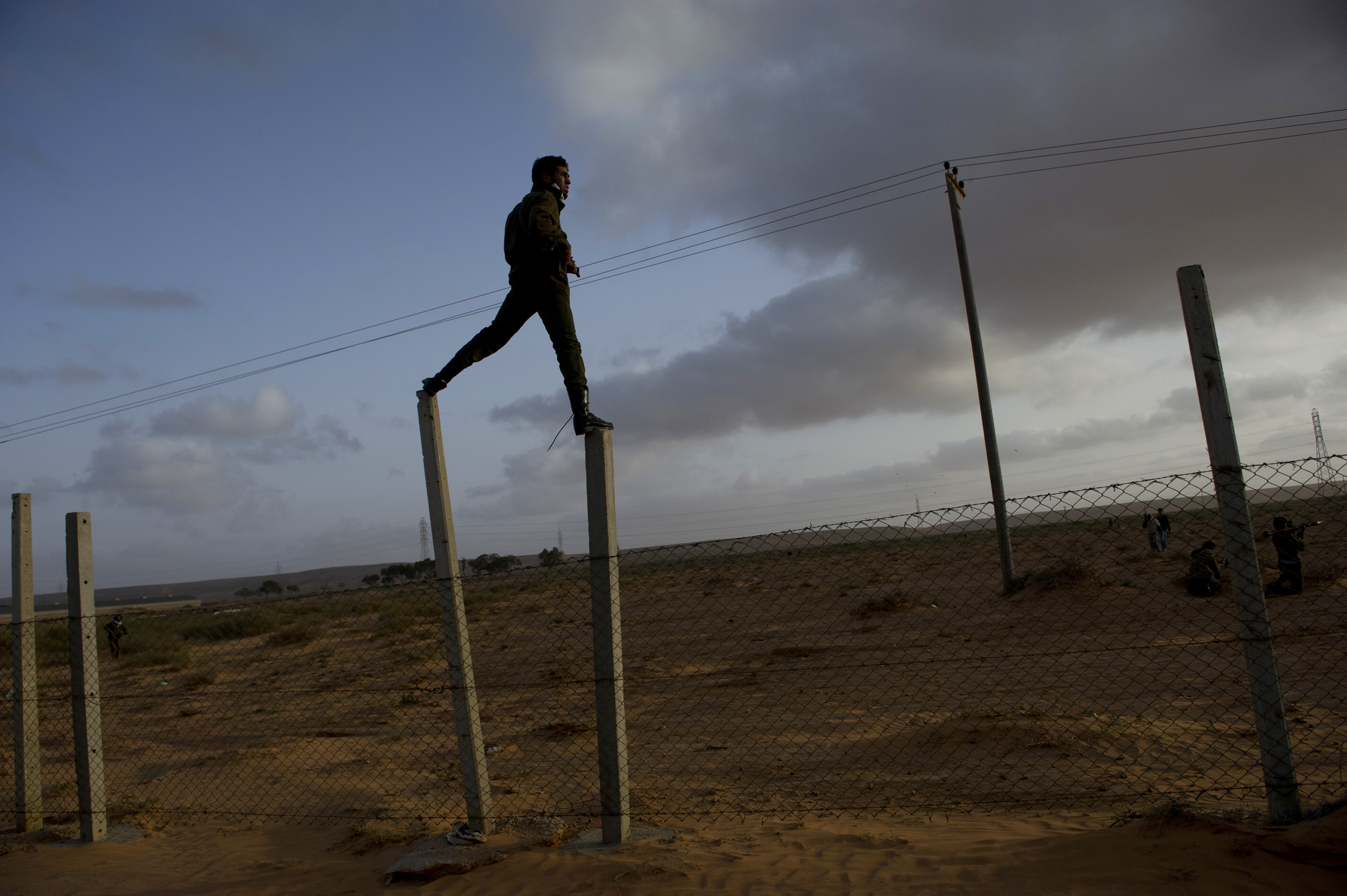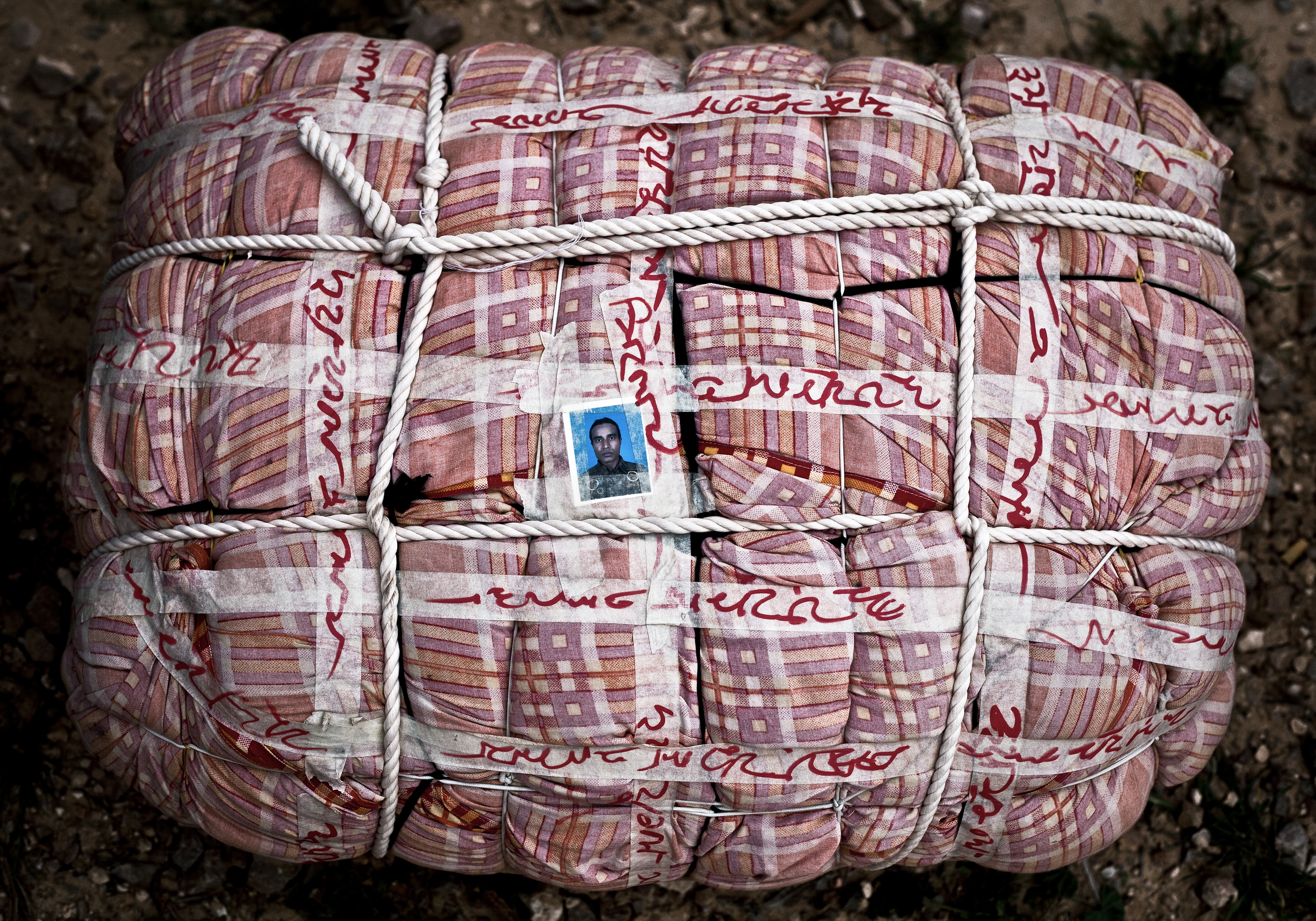
As many as 2.5 million migrants worked in Libya when violence erupted in the country.
They came mostly from Africa and Asia for jobs in the oil and construction industries.
Their devastated lives and livelihoods have been a tragic and overlooked consequence of Libya’s civil war.
Many have sold their homes and mortgaged their own lives for the opportunity to provide for their families by earning income overseas.
The uprising caught the foreign workers by surprise.
Many found themselves alternately trapped in the crossfire — or fleeing for their lives to reach overcrowded and under-supplied refugee camps.
When passing the border with Tunisia, all they own is a bag with few clothes and sometimes a blanket.
They attach ID’s photos to their bags, each one in his peculiar way, with the hopeful expectation that not everything has to be lost
and to recognize their own belongings among all the others in the unlikely hope to find them again in case of loss.
This sign suddenly reveals a singularity and brings back the individual.
